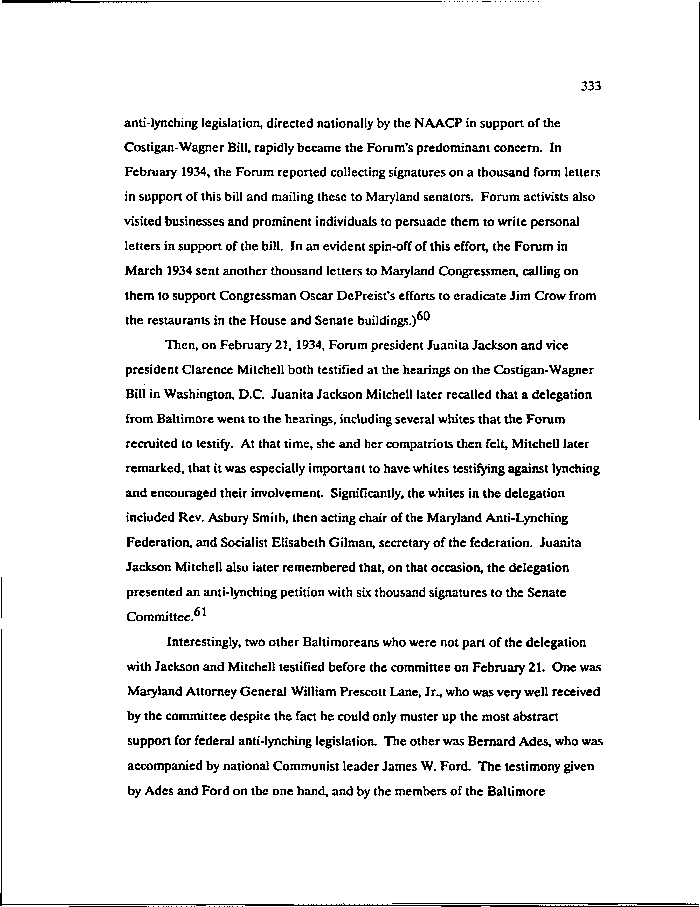|
333
anti-lynching legislation, directed nationally by the NAACP in support of the
Costigan-Wagner Bill, rapidly became the Forum's predominant concern. In
February 1934, the Forum reported collecting signatures on a thousand form letters
in support of this bill and mailing these to Maryland senators. Forum activists also
visited businesses and prominent individuals to persuade them to write personal
letters in support of the bill. In an evident spin-off of this effort, the Forum in
March 1934 sent another thousand letters to Maryland Congressmen, calling on
them to support Congressman Oscar DePreist's efforts to eradicate Jim Crow from
the restaurants in the House and Senate buildings.)°^
Then, on February 21, 1934, Forum president Juanita Jackson and vice
president Clarence Mitchell both testified at the hearings on the Costigan-Wagner
Bill in Washington, D.C. Juanita Jackson Mitchell later recalled that a delegation
from Baltimore went to the hearings, including several whites that the Forum
recruited to testify. At that time, she and her compatriots then felt, Mitchell later
remarked, that it was especially important to have whites testifying against lynching
and encouraged their involvement. Significantly, the whites in the delegation
included Rev. Asbury Smith, then acting chair of the Maryland Anti-Lynching
Federation, and Socialist Elisabeth Oilman, secretary of the federation. Juanita
Jackson Mitchell also later remembered that, on that occasion, the delegation
presented an anti-lynching petition with six thousand signatures to the Senate
Committee.61
Interestingly, two other Baltimoreans who were not pan of the delegation
with Jackson and Mitchell testified before the committee on February 21. One was
Maryland Attorney General William Prescott Lane, Jr., who was very well received
by the committee despite the fact he could only muster up the most abstract
support for federal anti-lynching legislation. The other was Bernard Ades, who was
accompanied by national Communist leader James W. Ford. The testimony given
by Ades and Ford on the one hand, and by the members of the Baltimore
|

